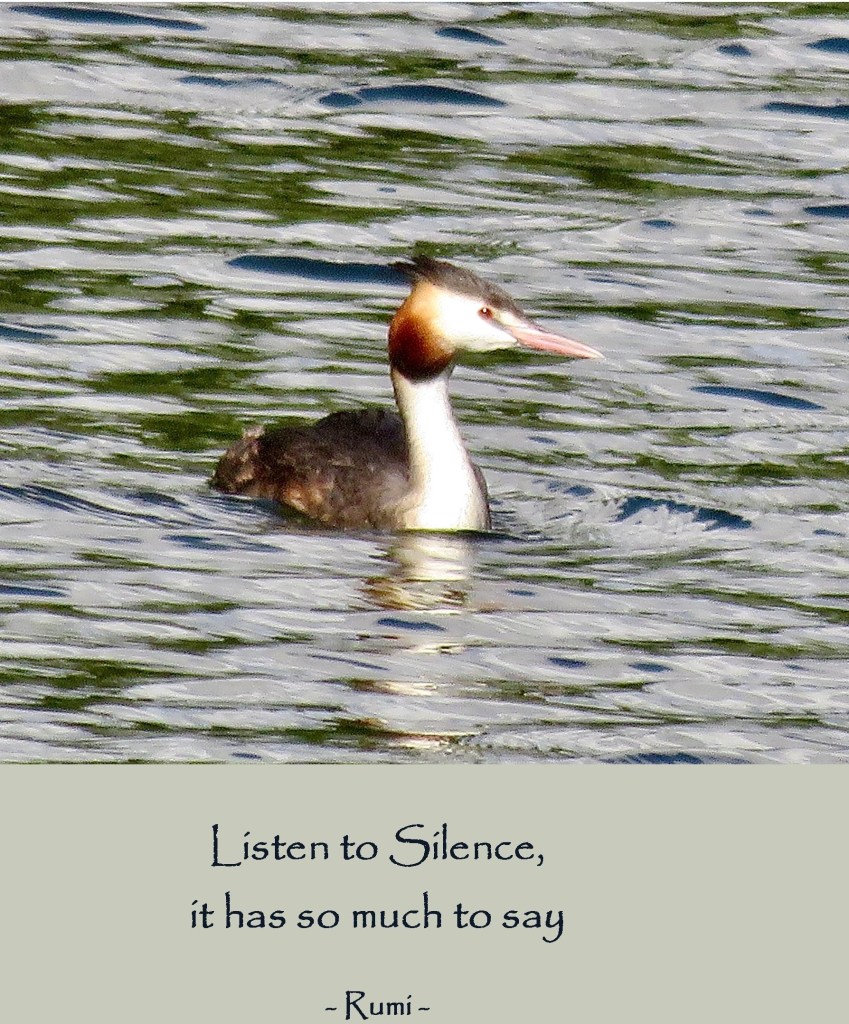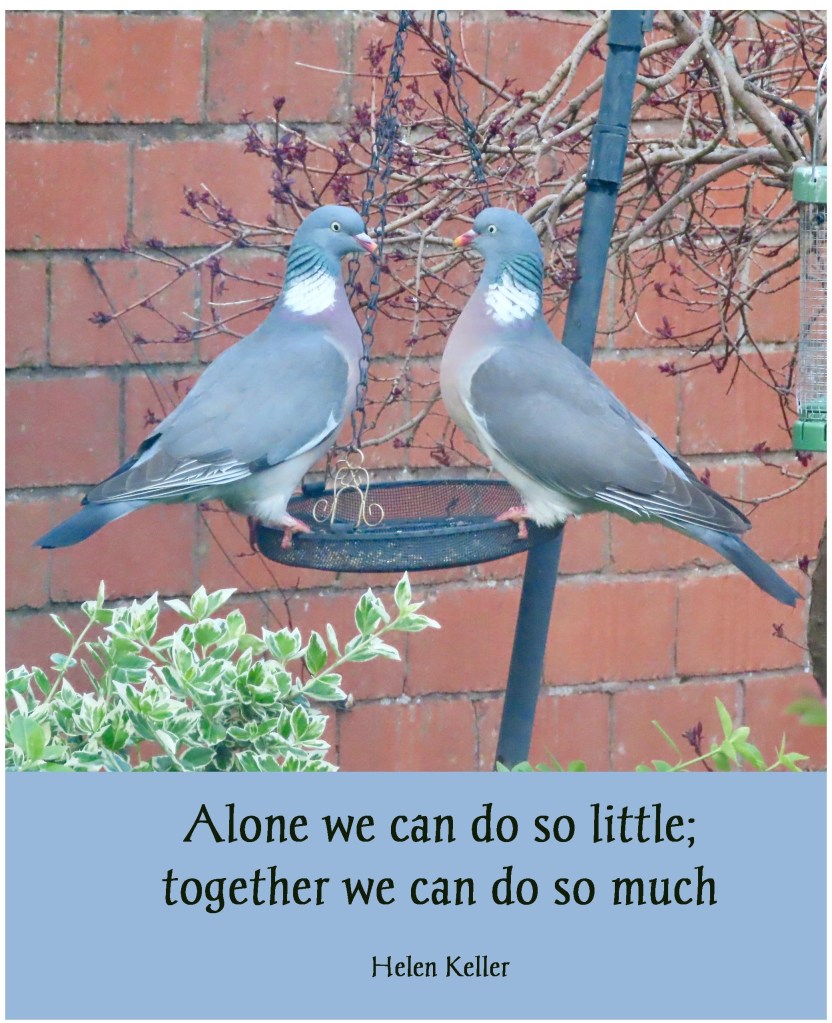
My friend Joyce’s latest Tweet is of a Great Crested Grebe enjoying the silent stillness at Fishers Green.
The quotation she has chosen is by the Poet, Rumi – Listen to the Silence, it has much to say. As Christians enter the season of Advent once again, this is an appropriate prayer.
Jalaludin RUMI (1207-1273) was born in Balkh, Afghanistan which was then on the edge of the Persian Empire. In what sounds familar, the family was forced to flee from the invasion of the Mongol armies led by Genghis Khan. They settled in Turkey, at Konya, where Rumi lived for the rest of his life.
Here he began to write the poetry which was to influence so many, not least today. It is said that he is the most widely read poet in the English language.
God and Love are major themes in his work and combined with that is the communication we have with the Divine through Silence.
Many of his poems end with reference to silence. Coleman Banks, a scholar, poet and author of a number of works about Rumi says:
Rumi devotes a lot of attention to silence, especially at the end of poems, where he gives the words back into the silence they came from.
Rumi once wrote:
Close the door of words
that the window of your heart may open.
To see what cannot be seen
turn your eyes inward
and listen, in silence.
He maintained that Silence is the language of God. All else is poor imitation.
At the beginning of Advent we are invited to reflect and pray about the coming of God, as Rowan Williams puts it, as child, at Christmas. We do it liturgically through the Advent season by thinking in turn about the expectations of the Patriarchs, the Patriarchs, Prophets, John the Baptist and Mary but our reflections are bound up with our own expectations too. Advent is a time when we are invited to ponder God’s loving meaning for us. This is an invitation into silence. Being still so that we may know more truly and more personally who God is.
The problem is that we have to try and do this in a conflicting world which has differing values.
At the moment we are being assured by our Government and certain parts of the press, that Christmas is being saved. What I think that means is that the myth of a Christmas, driven by capitalism and the manufacture of a feel good factor, is being saved. I have considerable doubt that our Prime Minister and Government are the right people to bring any kind of salvation let alone a Christian one. (I also await the headlines that the Government is also saving Hannukah, Diwali, and Eid !)
I prefer to keep Salvation as a prerogative of God, in His Incarnate Son.
Another theme of Advent is that of Waiting. This brings excitement to the expectation. We are looking forward to celebrating the absolute joy of God’s love which pours over us in the Christ-child of Bethlehem.
And our waiting is essential for our understanding of what that means for our world, our christian communities, ourselves. It is the poet R. S. Thomas who gave us the phrase: The meaning is in the waiting.
As the story of the birth of Jesus unfolds once again, we have to wait and watch and be still in case we miss what God is trying to say to us. We have to take Rumi’s words and act on them, Listen to the Silence – it has much to say.
In our busy, madly self-absorbed world, the Holy Family slip in at the silent pinnacle of the night. The stillness contrasts so much with the clamour of all those who speak but don’t listen; of those who write without thinking; of those who hurt and anger others into a position of mistrust. Our country and society are full of empty words and ill thought out solutions which change frequently and which endanger the world’s vulnerable.
Too many words! Too little reflection!
So follow Rumi:
Close the door of words
that the window of your heart may open.
To see what cannot be seen
turn your eyes inward
and listen, in silence.
Those who listen and are still, even by snatching a few minutes, will hear the loving whisper of God. He has much love to share with us.
The Great Crested Grebe understands this. That is why she is still.
[Mr.G.]
As ever, Thank You, Joyce.
For those who would like to hear more from Rumi, try Rumi, Bridge of the Soul.’
(journeys into the music and silence of the heart poems translated by Coleman Bark with an introduction by him) published by HarperOne




